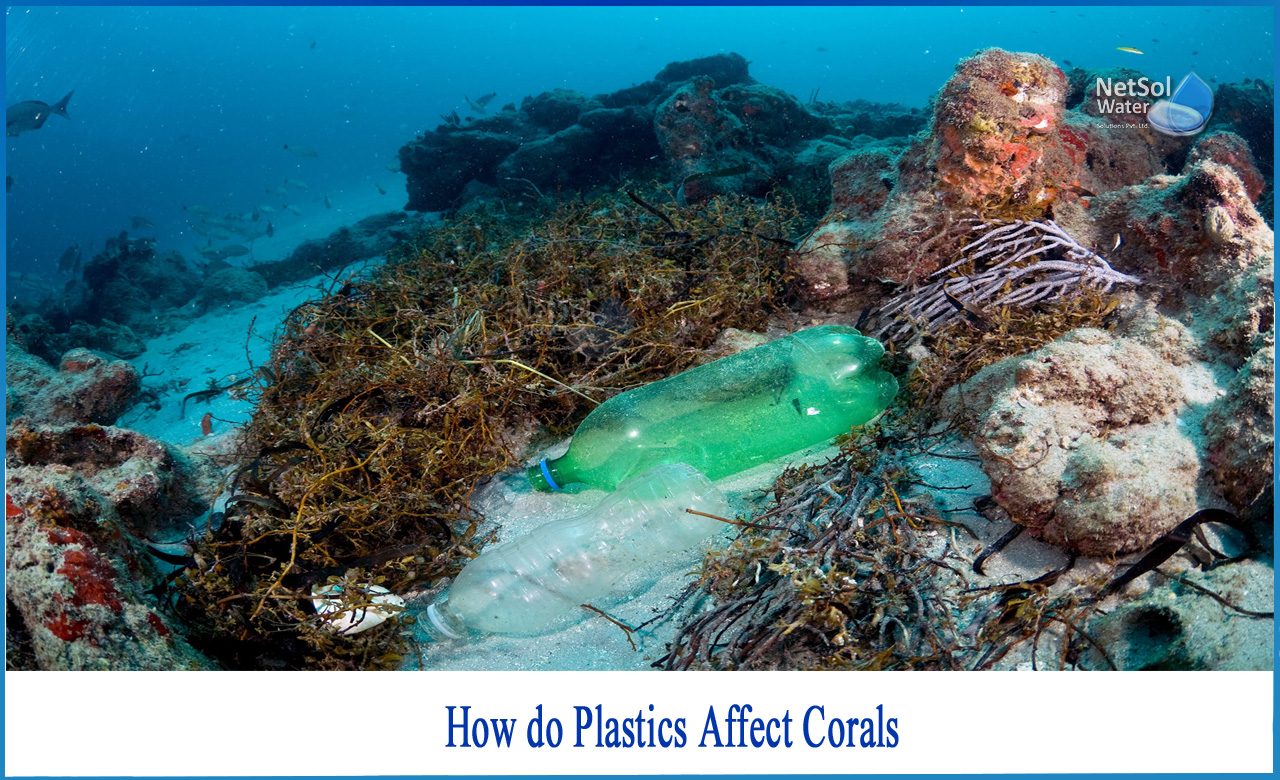How do plastics affect corals?
Plastic pollution threatens marine ecosystems. Both plants and animals adapt to the environment. A new natural equilibrium is created over and over again. Plastics in the environment disturb this balance.
Plastic pollution has emerged in just a few decades and is increasing rapidly. Animal species never had the opportunity to deal with it, for example by avoiding plastic or living away from it. Also, some species are more susceptible to plastics than others, and their interdependence is compromised.
Plastics in oceans
Sometimes referred to as the “7th Continent plastic”, pollution in the ocean is becoming a major tragedy. About 270,000 tonnes of plastic are swimming on the surface of our ocean, and more are floating between the two bodies of water.
The effects on marine life are well known. Turtles, birds and marine mammals often die after ingesting plastic scraps from cans and packaging rings that we have thrown into the environment. Every year 1.5 million animals die of plastic. However, the effects of plastic on reef-building corals have been neglected, probably due to the removal of plastic sources. However, analysis of marine plastic waste has shown that it can carry many bacteria, including some pathogens that cause coral disease.
Effect on coral reefs
Coral reefs are one of the most vulnerable habitats to climate change, but due attention has not been paid to how plastic pollution affects the health of coral reefs. Plastics are mass-produced for many purposes around the world and decompose very slowly into small invisible particles of 5 mm or less, so-called microplastics. When these small particles reach the reef, they are exposed to waves and currents that constantly rub the coral and damage it. Corals also ingest microplastics and can mistakenly feel "full", resulting in corals not eating nutritious foods. Inside the coral, microplastics can block the intestines and damage the interior.
Microplastics, which are already composed of chemicals, can also absorb pollutants and harmful microorganisms from seawater and transfer them to corals. Therefore, there is an urgent need to reduce microplastic pollution.
Climate change and coral bleaching
Over the last few decades, coral reefs have been heavily affected by climate change, primarily due to rising seawater temperatures and ocean acidification. As the water absorbs carbon dioxide from the atmosphere, the sea becomes more acidic (like lemon juice). Carbon dioxide is produced by factories, automobiles, or spent fuels such as coal and petroleum. This change in seawater properties can be harmful to plants and animals. The ocean is acidified because it absorbs the excess carbon dioxide that humans release into the atmosphere. These challenges drive corals away from the fine algae that live inside the cells causing them to lose their bright colour and become whitening. This is known as coral bleaching.
Coral bleaching can eventually kill the coral. According to the latest forecasts, more than 75% of coral reefs will be severely bleached over the next 50 years just by increasing temperatures. When corals face additional challenges such as plastic pollution, coral health can deteriorate.
Shell and Endangered Species Ecosystem
Another study of threats to marine ecosystems examines mussel threads. The shell attaches to the ground, rock, or rope with a thin thread. These byssus are very strong and elastic and can withstand currents and waves. Mussels also adhere to each other with these threads, creating a mussel embankment. Mussel beds are ecologically very important.
Mussels, which had been exposed to polyethylene micro plastics, lost their place. In fact, the strength of their byssus has been reduced by half. These exposed mussels also produce significantly less thread. As a result, when mussels are washed away, they adversely affect the biodiversity of the bed and endanger the marine ecosystem.
Netsol Water is Greater Noida-based leading water & wastewater treatment plant manufacturer. We are industry's most demanding company based on client review and work quality. We are known as best commercial RO plant manufacturers, industrial RO plant manufacturer, sewage treatment plant manufacturer, Water Softener Plant Manufacturers and effluent treatment plant manufacturers. Apart from this 24x7 customer support is our USP. Call on +91-9650608473, or write us at enquiry@netsolwater.com for any support, inquiry or product-purchase related query.



